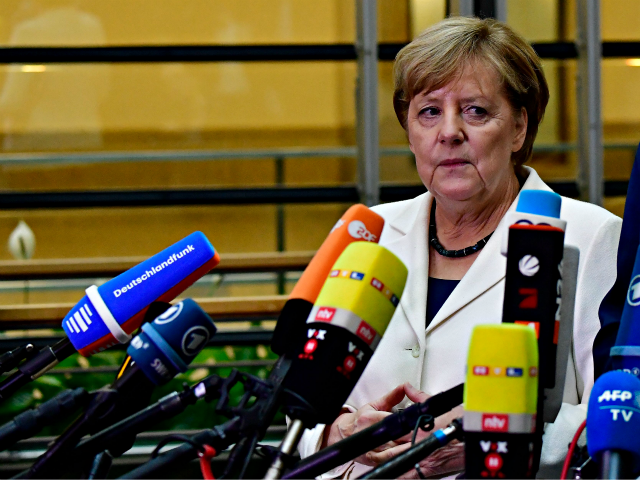German media has obtained a European Parliament report suggesting a ‘No Deal’ scenario after Brexit would leave a €10.2-billion hole in the European Union’s annual budget.
This would leave Germany, traditionally viewed as the engine of the bloc, having to make up much of the difference, with a rise in its annual contributions of 16 per cent — or roughly €3.8 billion — to maintain spending at current levels, Handelsblatt Global reports.
This is causing tensions within the bloc. France faces a comparatively light increase in its net budget contributions of €1.2 billion, and is keen to see EU-level spending not just maintained, but increased.
Meanwhile, elements of Angela Merkel’s Christian Democratic Union and the Free Democratic party they are likely to form a coalition with are keen to ensure their contributions rise by no more than €1 billion — which would mean a cut to the EU budget.
Good news… pic.twitter.com/jPlQE1X5Ar
— Lord Ashcroft (@LordAshcroft) November 14, 2017
The news comes as the chief executive of Deutsche Bank, Germany’s largest banking corporation, suggests the much-touted prospect of the City of London losing its role as the main facilitator of euro ‘clearing’ after Brexit, alleged to threaten tens of thousands of jobs.
“The idea of 74,000 jobs being at risk is ridiculous, it’s more like 74,” scoffed bank boss John Cryer.
Along with the news of the possible budget crisis, Cryer’s intervention provides further evidence that the Remain-leaning establishment’s portrayal of a Britain teetering on the brink in the face of a strong and united European Union is far from accurate.
Don't be fooled; practical European leaders like Hungary's foreign minister know a 'No Deal' scenario hurts the EU more than the UK. #Brexit pic.twitter.com/AM5EcSkpJq
— Jack Montgomery ن (@JackBMontgomery) October 15, 2017
Some EU leaders have begun to acknowledge this reality, with the Hungarian foreign minister recently stressing that “It is vital for the European Union … that a free trade agreement is concluded between the United Kingdom and the European Union,” considering “the fact that the British economy provides one-seventh of the EU’s economic performance”.
Hungary has previously warned that ‘No Deal’ would ultimately leave the EU at a disadvantage, as a Britain newly freed to sign its own bilateral trade agreements struck accords with Australia, the United States, and other world economies, leaving European businesses at an increasing competitive disadvantage.
WATCH | U.S Secretary of Commerce @WilburRoss calls for trade barriers between UK & US to come down after Brexit and slams protectionist EU. pic.twitter.com/Vm3IDkP3nk
— Leave.EU (@LeaveEUOfficial) November 6, 2017
U.S. Commerce Secretary Wilbur Ross has also said he believes a ‘No Deal’ scenario, while disruptive for both sides in the short term, would be worse for the EU than the UK, given EU businesses sell more to British consumers than vice versa.
Research suggests trade with the EU under default World Trade Organization rules — the ‘No Deal’ option — would cost British exporters £5.2 billion in tariffs, but, crucially the government would also raise £12.9 billion in tariffs on EU imports, allowing British businesses most impacted by the change to be amply compensated.

COMMENTS
Please let us know if you're having issues with commenting.